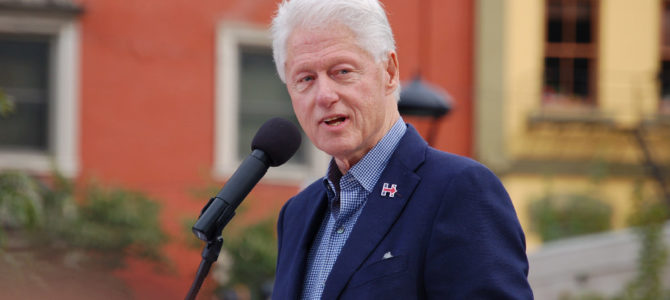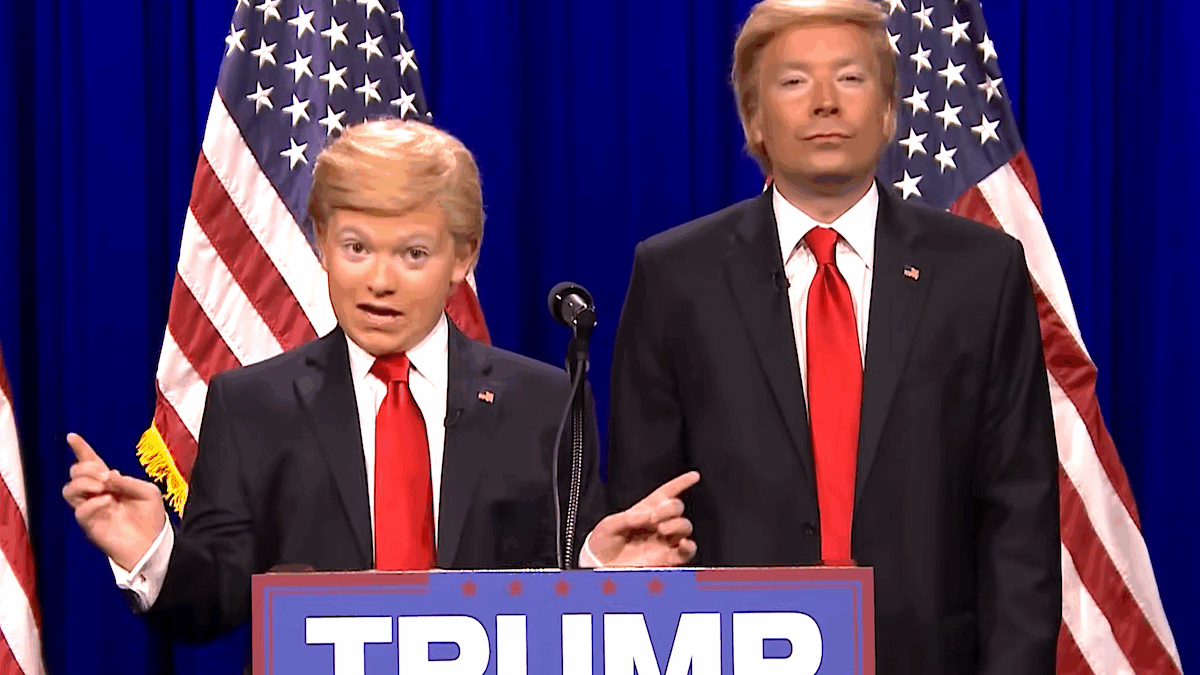
It is fascinating and welcome to see liberals discovering their consciences on Bill Clinton’s alleged rapist tendencies. True, this moral revelation comes about two decades later than it should have, and at precisely the moment the Left can no longer reasonably ignore it and not a moment sooner.
Just the same, it is nice to finally see some honesty on this issue. It is nice to see liberals, having no more use for the Clintons, finally undertaking what MSNBC host Chris Hayes calls “a real reckoning” with the very real possibility that Bill Clinton raped Juanita Broaddrick nearly 40 years ago.
And yet. One is tempted to believe we’re witnessing not a “reckoning” but a quick and guilty kind of moral shrug, a sort of Kansas City shuffle meant to absolve a bunch of deeply culpable people of their own deep and stinking culpability. For a real “reckoning” of American liberalism’s wink-nod approach to Bill Clinton’s alleged sex crimes would implicate American liberalism itself, or at least the last few decades of it. That is understandably not something many liberals are willing to do.
Still Too Scared to Face Themselves In the Mirror
A great example of this evasive genre can be found at The Atlantic, where Caitlin Flanagan has written an article titled, simply, “Bill Clinton: A Reckoning.” The article itself is actually not a reckoning of Bill Clinton or even an overture toward a reckoning.
Indeed, Flanagan only comes to the sexual assault allegations leveled at Clinton only about two-thirds of the way through, after bringing up Clarence Thomas’s alleged sexual harassment of Anita Hill. She places most of the blame for Clinton on “machine feminism” rather than Democratic opportunism, then lamely asserts Democrats need to “come to terms” with how they “abandoned some of [their] central principles” in their unthinking defense of Clinton.
At The New York Times, columnist Michelle Goldberg offers a similar pastiche of self-serving pseudo-reflection. “I Believe Juanita,” her most recent column declares upfront. After that she spends a great deal of time grumbling about Breitbart, “the right’s evident bad faith,” “right-wing propaganda,” “the right-wing press,” “epistemological warfare,” and “various figures in conservative media.” Only after six paragraphs do we get to Broaddrick, after which Goldberg quickly returns to the conservative-led “blizzard of lies” that led progressives to doubt Broaddrick 20 years ago.
Almost as an afterthought, Goldberg writes: “It’s fair to conclude, that because of Broaddrick’s allegations, Bill Clinton no longer has a place in decent society.” Goodness, after two decades this is the best we can manage?
Even Hayes’s own viral tweet is couched in a tired and evasive formula. “As gross and cynical and hypocrtical [sic] as the right’s ‘what about Bill Clinton’ stuff is,” he wrote, “it’s also true that Democrats and the center left are overdue for a real reckoning with the allegations against him.” Got it: so the Right is “gross and cynical and hypocritical” regarding the Left’s steadfast avoidance of Bill Clinton’s alleged sex crimes, but we’re also correct? Are liberals capable of discussing Clinton’s sordid history without having to obsessively refer back to conservatives?
They Let Bill Clinton Keep Legitimacy for 18 More Years
There is a deeper and more cynical politics at work here. “Reckoning” with Bill Clinton’s alleged crimes is not just a matter of the Democratic Party saying sorry for not believing Broaddrick in 1999. Bill Clinton has remained a prominent fixture of the party in the intervening 18 years, including as a major fundraiser during his wife’s two failed campaigns for president and as a stump for other Democrats, including President Obama.
Progressives, meanwhile, adore him. “Bill Clinton couldn’t keep it in his pants, but he was a great president!” one very liberal woman told me years ago. Broaddrick would surely agree with the first part. Summing up the feelings of millions of progressive millennials, comedian John Mulaney described Clinton as a “smooth and fantastic hillbilly who should be declared emperor of the United State of America.” This kind of hero-worship is only possible if one disbelieves Broaddrick’s testimony entirely—testimony that, 20 years on, remains very credible.
A “reckoning” of the accusations against Bill Clinton must thus also function as a reckoning of the last couple of decades of Democratic politics, a politics that has featured Bill Clinton as an ancillary yet still near-permanent fixture. Every Democrat has known of Broaddrick’s accusations for years. Yet Bill Clinton was still eagerly accepted within “decent society,” and his wife—who is quite reasonably seen as both an apologist for her husband’s perverted behavior and possibly a criminal conspirator regarding his crimes—became the standard-bearer of the Democratic Party itself in the last election.
To reckon with all of this means to reckon with the Democratic party in toto—its political instincts, its morals, and its public credibility and future viability.The Left predictably isn’t very keen to do that. So we get what we’ve witnessed in the past week: liberals feigning a kind of come-to-Jesus public confessional over Bill Clinton while ultimately just complaining about conservatives.
It is true that, in the end, we do not know if Bill Clinton raped Broaddrick. It is virtually impossible to prove it one way or the other, as it generally is with these types of claims. It would not be wholly unreasonable for someone to doubt Broaddrick after a careful review of the evidence. Then again, her claim, and the evidence surrounding it, is compelling enough to be believable, more so than many.
So what does it say about the Democratic Party that it has nevertheless allowed Bill Clinton a revered and permanent spot in its ranks? And what does it say about liberals that, even now, after all of this time, they cannot truly come to grips with it?









